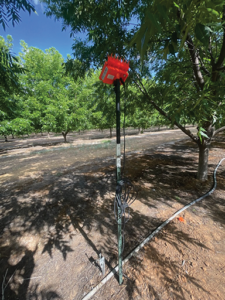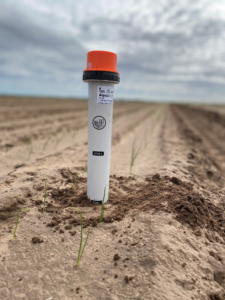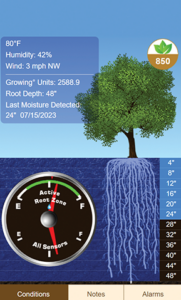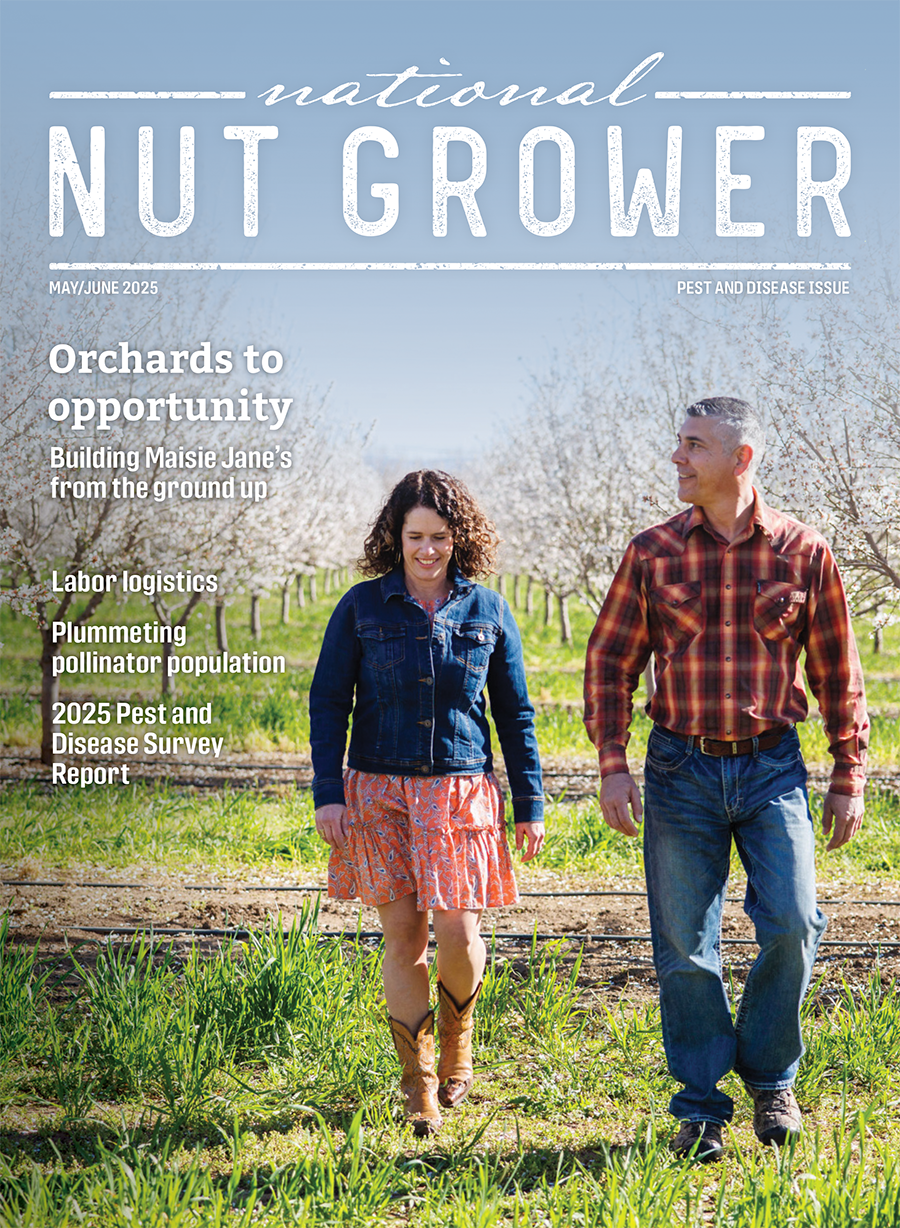
September/October 2023
Data management
As regulations continue to become more prevalent, the cost of inputs rise, and commodity costs fluctuate, tree nut growers do not want to be stuck asking each other if there is anything they can do.
“They want to be able to proactively identify solutions and chart both an environmentally and economically sustainable path forward on their ranch for generations to come,” said Jordan Hazell, research manager for Semios, a crop management platform. “To ensure they have the most complete understanding of the situation or conditions at hand, they will be much more successful with data to fill in the context around what you already know. Not necessarily data in volume, but data in context during key periods of your operational workflow and decision-making.”
That’s why there is a big interest and implementation of data management technology in the tree nut industry.
TRENDS
Leslie Hickle, an entomologist and CEO of FarmSense, who works with growers in the commercial tree nut industry, noted information based on real data supports and drives effective decision making.

“It’s a constantly changing environment. We need to develop the tools (sensors and robots) that collect the data necessary to populate the models to provide the best options for growers,”
she said. “The models need to be robust enough to accommodate variable and fixed inputs, outputs, and unexpected factors such as climate, markets, swarms of locusts, etc.”
Hazell sees the biggest trend in data management technology as being the increasing importance of contextualizing decision-making through the entire operational process.
“When talking to our customers, both growers and advisors wanted to see observations, forecasts, and simulations of what’s happening at a particular ranch at their fingertips while they were generating and acting upon various recommendations,” he said. “The thing about precision technologies is that they are cropping up, pun intended, in all aspects of a farming operation. Because of this, users are expecting to have a more diverse set of this information at their fingertips at crucial times to justify their investments in them.”
Kathleen Glass, vice president of marketing at San Diego-based AquaSpy, noted the biggest buzz in data management technology for growers is around getting
a big picture view by bringing together data from a number of collection points so they can understand the interactions and make better informed decisions for managing water, nutrients, salinity, pests, and cultivation.

“It’s the combination of a number of technologies collecting data from below ground, above ground and on the tree (leaf or trunk) that creates this big picture,” she said. “There are also some interesting collaborative efforts with universities (such as the University of California, Riverside and the University of California Agriculture and Natural Resources) to do more data analysis and modeling across multiple data sets.”
One of the biggest concerns for nut growers is rising salinity in the fields. This particularly impacts almonds.
For example, Elia Scudiero, PhD, research agronomist at the University of California-Riverside, is focusing research on measuring soil salinity and compensating irrigation levels. Too much salt in the soil leads to decreased yield, but up until that level, performance stays the same. Over-irrigating pushes the salt away, as does rainfall.
“As irrigation is costly and water is scarce, Scudiero wants to provide a model for growers to know how much and when they need to address soil salinity,” Glass said. “We’ve been working on data modeling projects with Elia Scudiero’s team. We also work with partner AQUA4D as they create soil and water management improvement programs for growers and use AquaSpy technology to help apply the appropriate amount, depth, and timing of irrigation as well as to monitor soil salinity and measure improvements.”
TECH ASSISTANCE
AquaSpy tries to make it easier for growers to adopt technology in two ways. One is through a software as
a service (SaaS) ownership model. What that means is the grower signs up for a subscription service and the hardware is included for free, and if anything happens to it for the life of the contract, the company replaces it.

“We are making it easier to install and use,” Glass said. “We’ve adopted new battery-powered low bandwidth eSim technology that can connect with virtually any carrier in the world.”
The company’s virtual cropping and digital modeling makes it easy for growers to see layer by layer beneath
“Nut growers really like to be able to see what’s happening with their trees that deep,” Glass said. “There is a fuel gauge that essentially tells them what’s available to the trees. From a modeling perspective, the algorithm gets smarter as it learns through the season.”
Semios knows that many producers and advisors commonly manage a diverse group of multiple crops, of which nuts sometimes are only one or two of them, so it’s very important that the company’s technology is as crop agnostic as possible at its core to ensure that the platform can service the needs for their entire operation and not just a specific crop.
“This means that it can be expected to address all cropping systems to a baseline degree with layers of more specialized functions and integrations being
built out from this baseline offering to address key requirements in various crops,” Hazell said. “That being said, a large majority of our customers grow almonds, pistachios, and walnuts.”
Growing nut trees isn’t getting any easier. Temperatures are rising, water is scarce and soils are getting more saline. Growers need every advantage to help them know immediately what’s happening in their orchards and to make the best informed decisions around scarce and costly resources. Data management tools are the answer.









